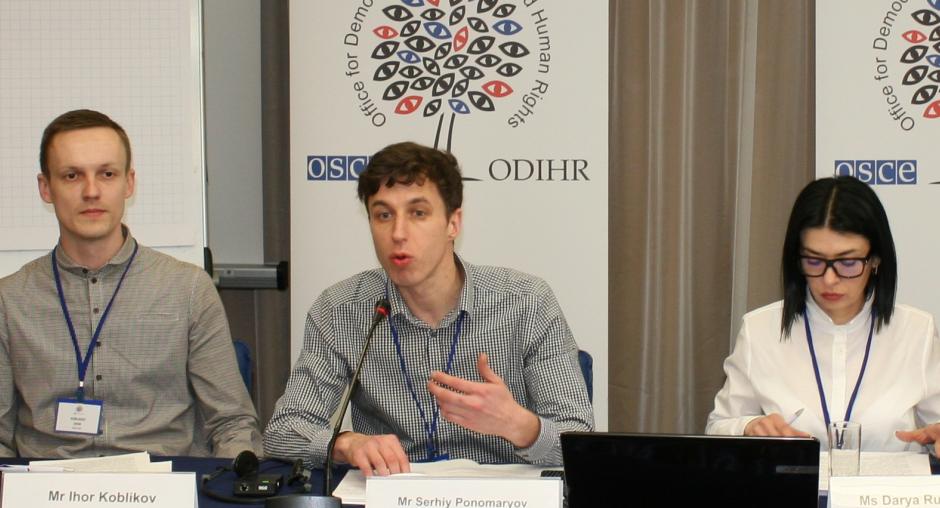Strengthening co-operation between civil society and state authorities to counter hate crime the focus of OSCE/ODIHR capacity-building event in Kyiv

State and civil society representatives from across Ukraine met as part of the Third National Confidence and Capacity-Building Event in Kyiv on 11 and 12 April 2017. The event, organized by the OSCE Office for Democratic Institutions and Human Rights (ODIHR), provided a forum to improve co-operation between state institutions and civil society groups to address hate crime.
Participants shared their perspectives on the different components of a comprehensive approach to hate crime, including addressing challenges for victims in reporting these crimes and the role of the criminal justice system. Participants also learned from the Greek experience in building a civil society coalition for hate crime monitoring in co-operation with state authorities and international organizations. Subsequently, participants identified opportunities for building greater co-operation between civil society and law-enforcement agencies in Ukraine.
“It is only by bringing together all of the relevant actors that we can build an effective coalition to counter hate crime in Ukraine,” said ODIHR Civil Society Adviser James Stockstill. “Civil society and law-enforcement personnel can reinforce each other’s efforts and ensure that victims are well supported.”
This is the third and final capacity-building event of this type in Ukraine and follows efforts to support civil society projects to address bias-motivated violence at the community level.
“While it is too early to speak about a decrease in the number of bias-motivated crimes in Poltava and the Poltava region, awareness of the issues of discrimination and bias has greatly increased,” said Hanna Kiyaschenko, Head of the Poltava branch of the NGO Social Service of Ukraine. “Theatre performances run through an ODIHR-funded project significantly increased the level of empathy and reduced aggressive prejudice against vulnerable groups.”
This event was part of ODIHR’s project on "Strengthening dialogue among civil society and with key government stakeholders in Ukraine on human dimension issues".
